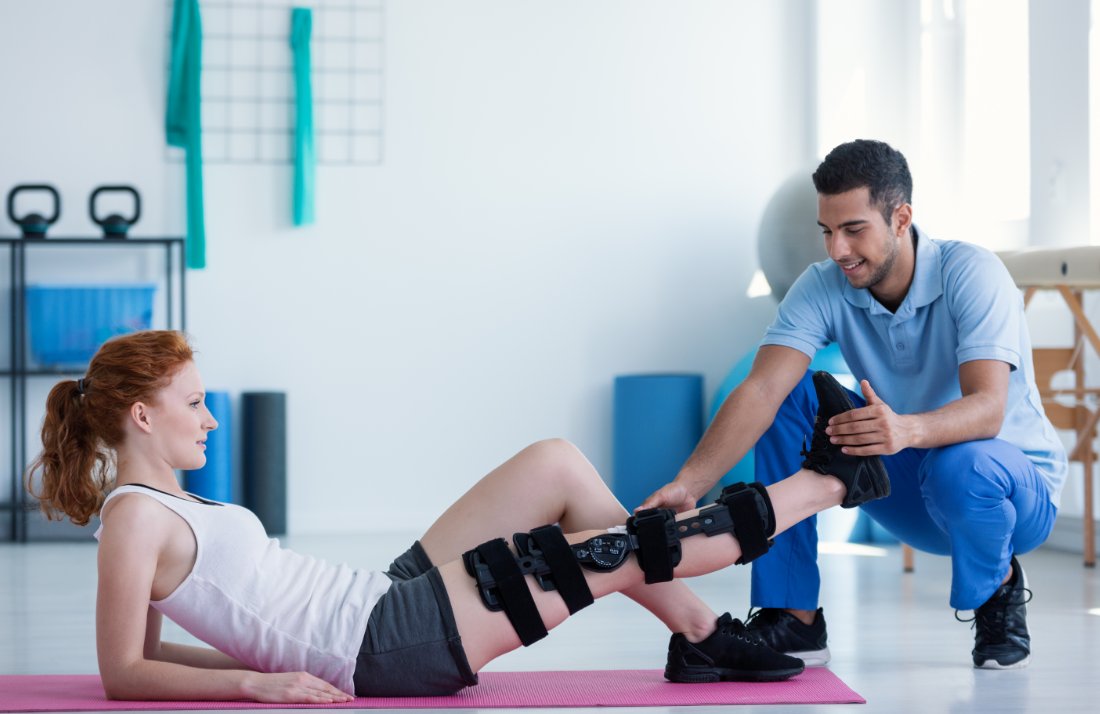
01 Sep The Role of Orthopedics in Rehabilitation After Sports Injuries
Orthopedics plays a pivotal role in helping athletes recover from sports injuries and return to peak performance. By focusing on the musculoskeletal system, orthopedic specialists provide surgical and non-surgical treatments tailored to each injury. Their expertise aids effective healing and strategies to prevent re-injury. Here are the roles of orthopedics in rehabilitation and long-term athletic health:
Accurate Diagnosis and Injury Assessment
The first step in any sports injury recovery begins with getting the right diagnosis. Orthopedics uses various tools to understand exactly what happened to your body. Specialists perform physical exams to check how well you can move the injured area. Digital X-rays help them see if any bones are broken or damaged. Other tests, like MRIs, may be needed to examine soft tissues like muscles and tendons.
Receiving the correct diagnosis is key because different injuries require distinct treatments. A torn muscle requires different care from a broken bone. The orthopedic team takes the time to thoroughly examine each patient. This careful assessment enables them to create a treatment plan tailored to your specific injury and goals.
Non-Surgical Rehabilitation Approaches
Many sports injuries heal well without surgery. Orthopedic doctors often start with non-surgical treatments that help your body heal naturally. Physical therapy is one of the helpful treatments for sports injuries. Therapists teach you exercises that strengthen weak muscles and improve flexibility. They also help reduce pain and swelling in the injured area.
Other non-surgical treatments include rest, ice, compression, and elevation. Anti-inflammatory medications can help reduce swelling and pain. Steroid injections may help with severe inflammation. Some patients benefit from specialized braces or supports that protect the injured area while it heals. The orthopedic team monitors your progress closely and adjusts treatment as needed.
Surgical Interventions
Some sports injuries require surgery to heal properly. Surgeons in the field of orthopedics have special training to fix damaged bones, joints, and soft tissues. Arthroscopic surgery uses small incisions and tiny cameras to repair injuries inside joints. This type of surgery often leads to faster recovery times. Fracture repair surgery helps broken bones heal in the correct position.
Joint replacement surgery may be needed for severe injuries or conditions like arthritis. Hand surgery can fix injuries to fingers, wrists, and other small structures. The surgical team explains all treatment options before any procedure. They make sure patients understand what to expect during and after surgery.
Long-Term Recovery and Injury Prevention
Recovery doesn’t end when the initial injury heals. Orthopedic care includes long-term planning to prevent future injuries. Sport-specific rehabilitation helps athletes return to their activities safely. This type of training focuses on movements and skills needed for specific sports. Physical therapists create customized exercise programs tailored to each athlete’s specific needs.
Education about proper technique and equipment use helps prevent re-injury. Orthopedic doctors teach patients how to recognize early warning signs of problems. Regular check-ups enable the medical team to identify issues before they develop into serious injuries. Maintaining strength and flexibility through regular exercise programs helps athletes stay healthier over time.
Visit an Orthopedics Practice Today
Orthopedics provides comprehensive care for athletes recovering from sports injuries. From accurate diagnosis through long-term prevention, orthopedic specialists guide patients through every step of recovery. The combination of non-surgical treatments, surgical expertise when needed, and long-term planning helps athletes return to their activities stronger than before. For sports and related injuries, contact an orthopedics practice near you today to schedule an appointment.

No Comments